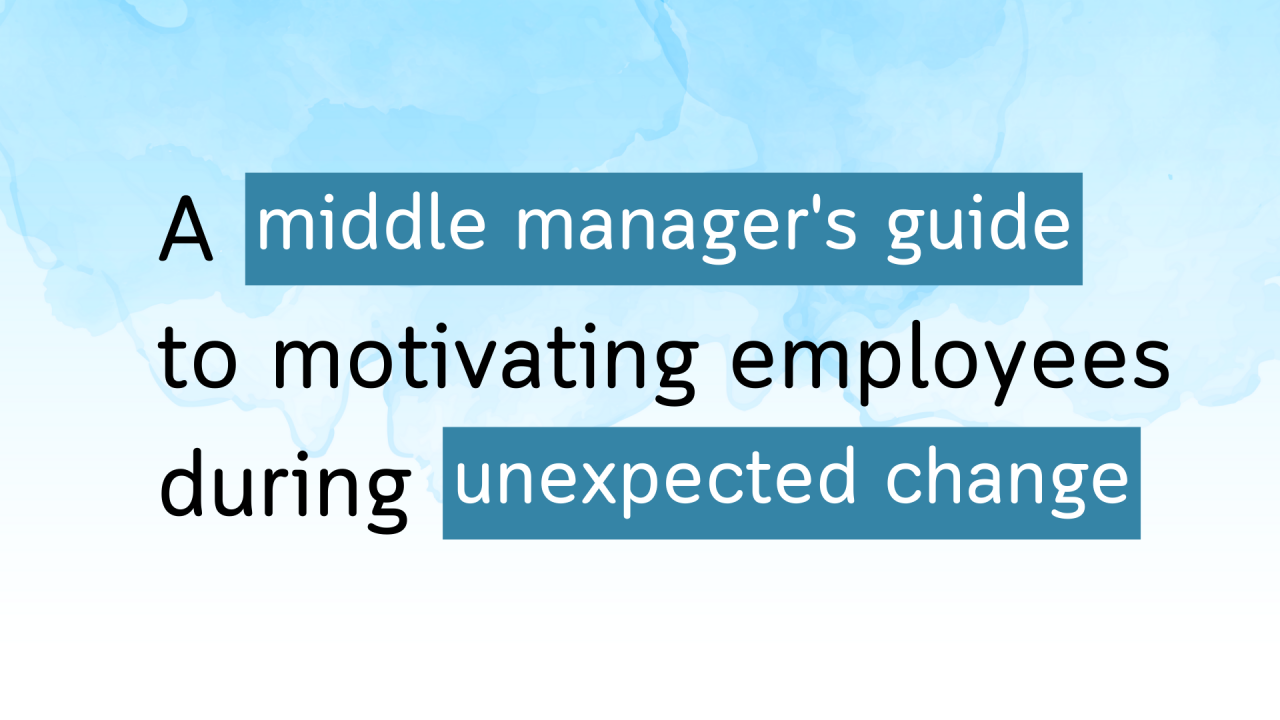Why Middle Managers Are Crucial For Company And Employee Success

Table of Contents
Middle Managers as the Bridge Between Leadership and Employees
Middle managers play a pivotal role in ensuring clear and efficient communication flows throughout an organization. They are the conduit, translating high-level strategic directives from upper management into actionable plans for their teams. Simultaneously, they effectively relay employee feedback, concerns, and suggestions upward, creating a crucial feedback loop.
Effective Communication and Information Flow
Effective communication is the cornerstone of successful middle management. It fosters transparency, reduces misunderstandings, and facilitates faster problem-solving. When information flows freely and accurately, employees feel more engaged and empowered.
- Improved transparency: Open communication fosters trust and reduces rumors and speculation.
- Reduced miscommunication: Clear directives and consistent messaging prevent confusion and costly errors.
- Faster problem-solving: Quick identification and communication of issues allows for prompt solutions.
- Enhanced employee engagement: Employees who feel heard and informed are more likely to be engaged and productive.
Middle managers can employ several strategies to enhance communication: regular team meetings, open-door policies, and the use of clear, concise language in both written and verbal communication. For example, a well-structured team meeting agenda can ensure all relevant information is discussed efficiently and effectively.
Mentorship and Talent Development
Beyond communication, effective middle managers act as mentors and guides for their team members. They nurture employee growth, provide valuable feedback, and identify high-potential individuals, contributing significantly to talent development within the organization.
- Improved employee retention: Employees who feel supported and mentored are more likely to stay with the company.
- Increased skill development: Middle managers can provide opportunities for training and skill enhancement.
- Succession planning: Identifying and developing high-potential employees ensures a smooth transition of talent within the organization.
- Fostering a culture of learning and development: A supportive environment encourages continuous growth and innovation.
Middle managers can implement mentorship programs, provide opportunities for cross-training, and conduct thorough performance reviews to support employee development. Regular feedback sessions, both formal and informal, are also vital for guiding employees' career paths and identifying areas for improvement.
Driving Team Performance and Productivity
Effective middle managers are not just communicators; they are leaders who drive team performance and productivity. This involves setting clear goals, delegating tasks effectively, and fostering a positive and supportive work environment.
Setting Clear Goals and Expectations
Establishing clear objectives and expectations is fundamental to team success. Middle managers use goal-setting frameworks, such as SMART goals (Specific, Measurable, Achievable, Relevant, Time-bound), to ensure everyone is working towards the same targets. This fosters accountability and allows for measurable results.
- Increased team productivity: Clear goals provide direction and focus, leading to improved output.
- Improved project management: Effective delegation and monitoring ensure projects are completed on time and within budget.
- Enhanced accountability: Clear expectations make it easier to track progress and identify areas for improvement.
- Measurable results: SMART goals allow for the objective assessment of team performance.
Effective delegation techniques, regular progress tracking, and utilization of project management tools all contribute to enhanced team performance under the middle manager’s guidance.
Motivating and Empowering Teams
A supportive and positive work environment is essential for high team morale and productivity. Middle managers play a critical role in fostering such an environment by empowering their team members and providing regular recognition.
- Improved morale: A positive work environment boosts team spirit and motivation.
- Increased job satisfaction: Employees who feel valued and respected are more satisfied with their work.
- Reduced employee turnover: A supportive environment encourages employee loyalty and retention.
- Higher levels of commitment and engagement: Empowered employees are more committed to achieving team goals.
Strategies like team-building activities, recognition programs, regular feedback sessions, and opportunities for professional development can significantly boost team morale and engagement.
Contributing to Overall Company Success
Middle managers are not just focused on their immediate teams; they contribute significantly to the overall success of the company. They translate company strategies into actionable plans and proactively identify and solve problems.
Strategic Implementation
Middle managers are vital for translating high-level corporate strategies into tangible results at the operational level. They are the bridge between the "what" (company strategy) and the "how" (operational execution).
- Improved efficiency: Efficient implementation of strategies leads to improved operational processes.
- Increased profitability: Successful execution of strategies contributes to increased revenue and profitability.
- Achievement of company goals: Effective middle management ensures that company-wide objectives are met.
- Successful execution of strategic initiatives: Middle managers play a critical role in bringing strategic plans to fruition.
Middle managers' contribution to specific company goals might involve cost reduction initiatives, market share growth strategies, or new product development projects. Their understanding of both the overall strategy and the operational realities allows for effective implementation.
Identifying and Solving Problems Proactively
Middle managers are often the first to identify emerging issues and potential problems within their teams and departments. This proactive approach allows for the implementation of solutions before problems escalate, reducing operational risks and saving the company time and resources.
- Reduced operational risks: Proactive problem-solving minimizes the likelihood of disruptions and costly setbacks.
- Improved problem-solving capabilities: Effective middle managers develop strong problem-solving skills within their teams.
- Proactive risk mitigation: Identifying potential problems early allows for effective risk management strategies.
- Cost savings: Preventing larger problems saves time, resources, and potential financial losses.
By actively engaging with their teams and understanding operational processes, middle managers can effectively identify and address potential issues before they become significant challenges.
Conclusion
In conclusion, the importance of middle managers in achieving both company and employee success cannot be overstated. They act as the vital communication link, drive team performance, and contribute directly to the successful implementation of company strategies. Investing in middle management training and development is an investment in the future success of any organization. Strong middle managers are not just valuable assets; they are vital for a thriving and productive workplace. Consider the value of your middle management team and how you can support their development. Explore further resources on effective middle management strategies and leadership development programs. Share your experiences with effective middle management in the comments below – let's discuss how we can further elevate the role of middle managers within our organizations.

Featured Posts
-
 Analyzing The Risks Of Investing In An Xrp Etf Supply And Demand Dynamics
May 08, 2025
Analyzing The Risks Of Investing In An Xrp Etf Supply And Demand Dynamics
May 08, 2025 -
 Arsenal Vs Ps Zh Barselona Vs Inter Rozklad Ta Prognoz Matchiv 1 2 Finalu Ligi Chempioniv
May 08, 2025
Arsenal Vs Ps Zh Barselona Vs Inter Rozklad Ta Prognoz Matchiv 1 2 Finalu Ligi Chempioniv
May 08, 2025 -
 Dwp Announces Major Universal Credit Claim Verification Changes
May 08, 2025
Dwp Announces Major Universal Credit Claim Verification Changes
May 08, 2025 -
 Psg Nice Maci Canli Izle Hangi Kanalda Ve Nasil
May 08, 2025
Psg Nice Maci Canli Izle Hangi Kanalda Ve Nasil
May 08, 2025 -
 Official Play Station Podcast Episode 512 True Blue Discussion And Analysis
May 08, 2025
Official Play Station Podcast Episode 512 True Blue Discussion And Analysis
May 08, 2025
